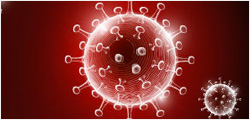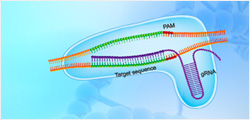Mature TGF beta 3[Biotin], Avi, Human
Transforming growth factor-beta 3 is a cytokine which is involved in cell growth regulation and differentiation, stimulation of extracellular matrix and modulation of immune responses. TGF beta 3 RNA is expressed in a diverse array of tissues including perichondrium, bone, intervertebral discs, mesenteries, pleura, heart, lung, palate, and amnion, as well as in central nervous system (CNS) structures such as the meninges, choroid plexus and the olfactory bulbs. Furthermore, in several organ systems, TGF beta 3 transcripts are expressed during periods of active morphogenesis suggesting that the protein may be an important factor for the growth and differentiation of many embryonic tissues.
| ¥6600 | |
| Z04554-100 | |
|
|
|
|
|
|
|
|
|




































